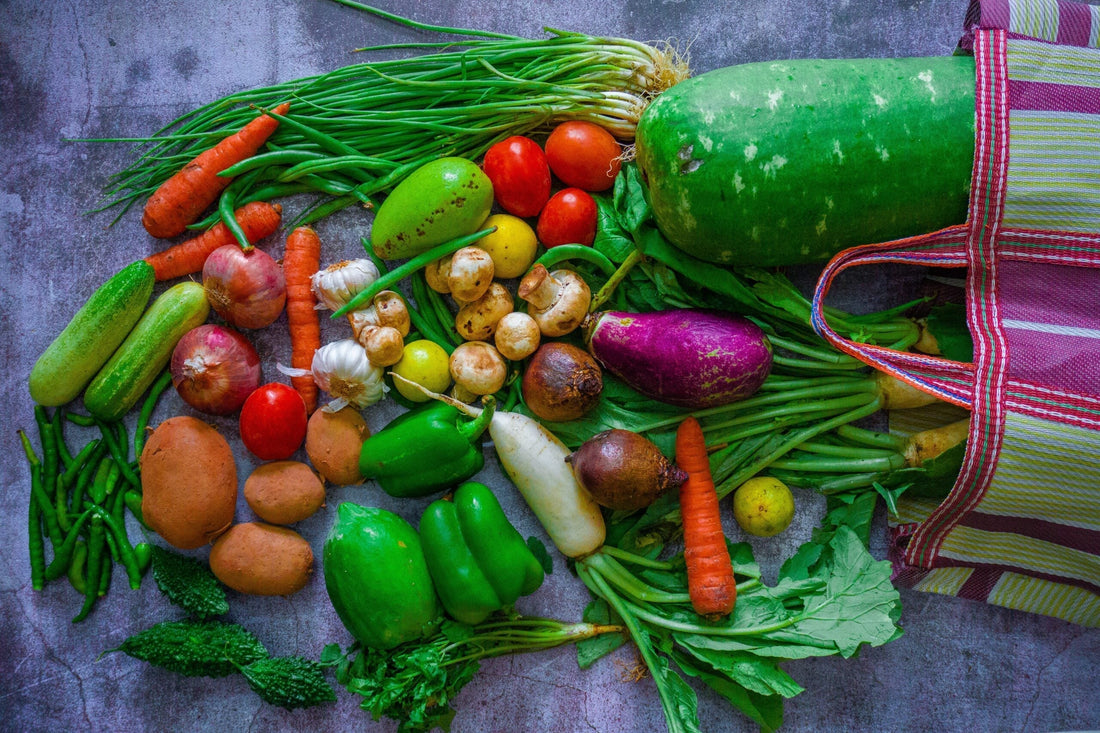Since its inception in 1977, World Vegetarian Day and Vegetarian Awareness Month has been celebrated beginning October 1st of each year. For those who are contemplating transitioning to a vegetarian diet, this is a perfect time to gear up and gather information on how to effectively make this dietary shift.
Always consult with your health care provider before making any dietary changes.
Dramatically changing how you eat involves making some big adjustments — from your grocery shopping to your meal planning, to your stomach, and your mind. To make it easier, we’ve got some helpful pointers but, first, let’s talk about...
What Is a Vegetarian Diet?
A Vegetarian diet is primarily plant-based, with the absence of animal meats. There are actually a few different types of vegetarians:
- Lacto-Ovo vegetarian: Excludes animal flesh but consumes dairy and eggs.
- Lacto vegetarian: Excludes animal flesh and eggs but consumes dairy.
- Vegan: Excludes all forms of animal flesh and animal products such as eggs, dairy, etc.
What Are the Health Benefits of A Vegetarian Diet?
By focusing on whole, minimally processed foods, research has determined that you can support the reduction of body weight according to Dr. Reshma Shah of Stanford University.
5 Tips to Make The Transition
Moving from a standard American diet (SAD) to a vegetarian diet can be challenging. Always consult with your health care provider before making any dietary changes.
With SAD being mostly animal-based -- think hamburgers, fried chicken, steak, bacon -- the transition will be a whole lot easier if you take it step-by-step and meal-by-meal.
- Go Slowly - Start by doing Meatless Mondays -- as the name suggests, go meat-free for the whole day. Do this for two weeks and then begin to tackle your breakfasts. After two additional weeks of Meatless Mondays and vegetarian breakfasts, remove meat from your lunches and so on. Create a calendar for yourself by setting a goal date to be fully vegetarian and work backward for each step to get there. Give yourself two to three months to let your body adjust to this lifestyle change.
- Add In More Veggies & Fruits - Focus on eating more vegetables and fruits as you transition to a vegetarian diet. In addition to salads, make soups that include lots of veggies, eat a piece of fruit or a bowl of berries as a snack, bake pans of roasted veggies and dip raw veggies in hummus. There are tons of recipes out there that can help you create delicious meals from these nutritious foods.
- Educate Yourself - Whatever your reasons for becoming a vegetarian, it pays to research, whether it be for exciting new recipes or environmental factors and health effects, you will continue to be inspired to make changes in your diet.
- Have The Right Staples on Hand - A useful exercise is to make a list of foods you regularly eat, for breakfast, lunch, dinner, desserts, and snacks. Not meals, but ingredients. And then think about vegetarian alternatives and make a new list. (Note: Your research can help with this!) For example, instead of eating chicken in a stir-fry dish, you might try tofu. With a new list of staples, you should have no trouble stocking your fridge and pantry.
-
Stay Hydrated - The initial stage of transitioning to a vegetarian diet is the most important. The SAD, because it is so full of animal products, can leave residue in your intestinal tract over time. When you begin to incorporate more plant foods into your diet, a gentle detox may begin to happen. The fiber from the plant foods will help cleanse your digestive tract, so it’s important to maintain proper hydration to continually flush your digestive system. Adding fresh lemon juice to your water can also help aid in the detoxification process.

To support your vegetarian journey, Biochem offers a whole host of products that provide important clean proteins for those following a vegetarian diet. For example, our line of Whey Protein powders is Certified Vegetarian by the American Vegetarian Association.
Those following a vegan diet will want protein options that are solely sourced from plants, so try Biochem’s Plant and Vegan Protein Powders.
